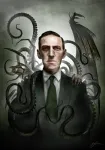Blind Read Through: J.R.R. Tolkien, The Silmarillion; Of Fëanor and the Unchaining of Melkor

“Then he looked upon their glory and their bliss, and envy was in his heart; he looked upon the Children of Ilùvatar that sat at the feet of the Mighty, and hatred filled him; he looked upon the wealth of bright gems, and he lusted for them; but he hid his thoughts, and postponed his vengeance.“
Welcome back to another Blind Read! This week we focus on an individual and witness the beginning of the rift, which brought the first age to a close.
The chapter begins right where the previous one left off. The Elves were all brought together in Valinor, seemingly happy and together for the first time since the sundering. “This was the Noontide of the Blessed Realm, the fullness of its glory and its bliss, long in tale of years, but in memory too brief.”
This quote seems very appropriate for Elvenkind because they live forever (unless killed), but time does the same thing to everyone. Life passes by quickly, unbeknownst until the time is already gone. I wonder if there is a bit of autobiography here with Tolkien and if his feelings about life and time commingle with the complexity of Middle-earth and Elves.
We soon dive into the reasoning behind this feeling of how long and beautiful and how fleeting life can be.
“In that time was born in Eldamar, in the house of the King in Tirion upon the crown of Tùna, the eldest of the sons of Finwë, and the most beloved. Curufinwë was his name, but by his mother he was called Fëanor, Spirit of Fire; and thus he is remembered in all the tales of the Noldor.”
Thus began days of bliss, but “bearing of her son Míriel was consumed in spirit and body,” and she soon realized that, “Never again shall I bear child; for strength that would have nourished the life of many has gone forth into Fëanor.” She left for the gardens of Lórien to rest but instead passed from the world of Aman.
There is considerable foreshadowing in this sequence. The first is Finwë’s name, Fëanor, because it means Spirit of Fire. The other being that we know of so far in the whole book who has a connection with fire is Melkor; and even created servants for himself through the Maiar made from the deepest of flames – the Balrog.
We also have a trope that Tolkien is introducing. Fëanor has lost his mother and has to deal with the knowledge that his birth pulled the life force from his mother. His internal guilt fuels that Spirit of Fire within him, but beyond that, Finwë then finds another wife not of the Noldor but the Vanyar. Fëanor then has two siblings from a different sect of elves and has a new stepmother.
Finwë did try hard; in fact, we are told, “All his love he gave thereafter to his son.” Fëanor soon “became of all the Noldor, then or after, the most subtle in mind and the most skilled in hand.” Fëanor even “discovered how gems greater and brighter than those of the Earth might be made with skill.”
This essay is a Blind Read, so the only knowledge I have of the world is from the public ethos and reading The Lord of the Rings (which I read before the movies came out). Nevertheless, I remember hearing that the Silmarils (which is what this book is based upon…The Silmaril-lion) were gems the Elves held dear. Could this be the first time we see them?
There is also a connection with the avian creatures which pop up. However, again, “The first gems that Fëanor made were white and colourless, but being set under starlight they would blaze with blue and silver fires brighter than Helium; and other crystals he made also, wherein things far away could be seen small but clear, as with the eyes of the eagles of Manwë.” So there must be some connection between the sentience of the eagles and the gems produced by the Noldor.
Getting back to the story, Fëanor eventually marries Nerdanel, “daughter of the great smith named Mahtan.” “Nerdanel also was firm of will…and at first she restrained him when the fire of his heart grew too hot; but later his deeds grieved her, and they became estranged.” Fëanor and Nerdanel had seven children together, but even that connection was not enough for Fëanor, and his temperament burned too intensely.
Fëanor hotly disliked his two new siblings, Fingolfin and Finarfin, who sired Elrond and Galadriel, as we saw last week. As we move deeper in the story, we can assume this might be where the rifts came from between Fëanor and Nardanel and Fëanor and the rest of the Noldor.
We soon came to the end of the Noontide of Valinor, as Melkor came up for parole (or rather, the Valar gave him a definite “term for his bondage“). However, still, “hatred filled him” and “envy was in his heart.”
How could the Valar possibly do such a thing, you might ask? Nevertheless, Manwë was the one who gave Melkor his release because he believed “that the evil of Melkor was cured.“
How could he possibly believe that imprisonment had cured Melkor? “For Manwë was free from evil and could not comprehend it, and he knew that in the beginning, in the thought of Ilúvatar, Melkor had been even as he; and he saw not the depths of Melkor’s heart and did not perceive that all love had departed from him forever.”
So now Melkor was free. He knew that some of the Valar, like Ulmo, did not believe his repentance, but he hid his vengeance well. He hated the Eldar with everything he had, so he started corrupting them. The Vanyar, however, “held him in suspicion,” but the “Noldor took delight in the hidden knowledge that he could reveal to them; and some hearkened the words that it would have been better for them never to have heard.”
Uh oh. Now we have Melkor released and Fëanor with his soul filled with fire. Would these two spar together and become a new power rising? No.
“Melkor indeed declared afterwards that Fëanor had learned much art from him in secret, and had been instructed by him in the greatest of all his works; but he lied in his lust and his envy, for none of the Eldalië ever hated Melkor more than Fëanor son of Finwë, who first named him Morgoth.“
Apparently, “Fëanor was driven by the fire of his own heart only, working ever swiftly and alone.”
This is where the chapter ends, but we have the beginnings of a wonderfully epic confrontation between the Noldor and Morgoth. From what I understand, Morgoth was the antagonist of the First Age, and it seems as though I may have been wrong. Maybe the power of the fire of Fëanor’s soul is the only thing that saved the Eldar from the matching fire of Morgoth.
Next week, let us find out how the fight began in “Of the Silmarils and the Unrest of the Noldor.”







Leave a comment